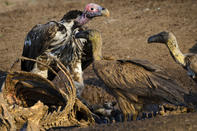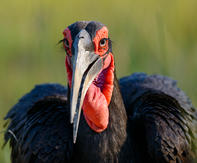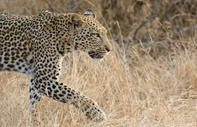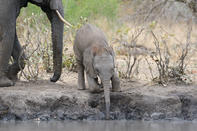Vulture Research
The Endangered Wildlife Trust of South Africa conducts a vulture nest monitoring project inside the Timbavati Private Nature Reserve.

This is a two-fold project, which monitors selected nests for their annual use and also monitors the impact elephants have on the trees used by vultures. To gain an overall picture of the vulture chick movement and elephant impact, vulture chicks are marked by guests, guides and staff encouraged to record their locations of where the chicks were seen.
Ground Hornbill Research

During the breeding season of the ground hornbill, which runs from October to March, the Southern Ground Hornbill Research Programme monitors natural and artificial nests inside the Timbavati Private Nature Reserve. The research assesses why some areas are more successful than others in their breeding attempts.
Part of this project is to harvest and hand rear chicks for wild release and a captive breeding programme, which is run by the Mabula Ground Hornbill Project. Another aspect of this research is tracking, via a transmitter, which has been attached to individual birds from various breeding groups, to monitor and calculate their home ranges, movements and preferred habitats.
Leopard Research

The Timbavati Leopard Project operates within the Timbavati Private Nature Reserve to help address threats, and create a management strategy to help protect the leopard.
The researchers conduct behavioural profiling to gain a better understanding of leopards and are then able to specifically target the threats to the species. The project is non-invasive as it uses video and images from camera traps that are placed throughout the reserve.
Elephant Research

The Elephants Alive programme, which is part of the Save the Elephants in South Africa, conducts some of their research in Timbavati Private Nature Reserve. The project is based on sound scientific studies, which forms the basis for productive wildlife management. It also encompasses education and action on environmental issues.
The local population are an important component of the programme using their local knowledge from the grassroots level in research, and education and developing a sustainable conservation ethic. Since 2007, Timbavati has hosted Bush School Programmes allowing local children, that reside on the outskirts of the reserve, to see first hand the wildlife and so aid in promoting conservation.
 Timbavati Game Reserve covers approximately 53,000 hectares of unspoiled South African nature. It is located on the western edge of the Krug...
Timbavati Game Reserve covers approximately 53,000 hectares of unspoiled South African nature. It is located on the western edge of the Krug...